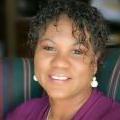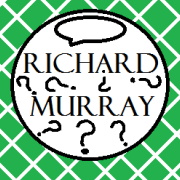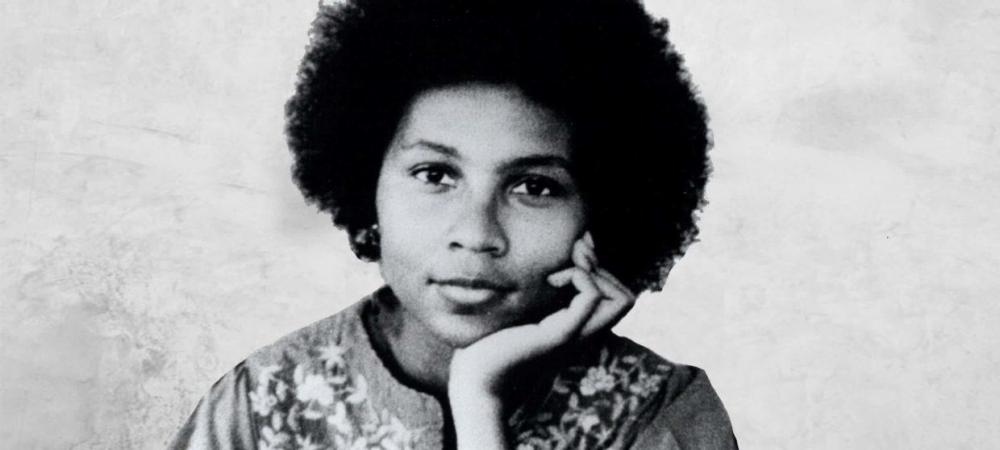-
Posts
3,840 -
Joined
-
Last visited
-
Days Won
119
richardmurray's Achievements
Single Status Update
See all updates by richardmurray
-
May your spirit fly high Bell Hooks
hooks’s family said contributions and memorials can be made to the Christian County Literacy Council < https://www.paypal.com/donate/?hosted_button_id=CGQPNACBYNRZA > , which promotes reading for children, or the Museums of Historic Hopkinsville Christian County < https://www.paypal.com/donate/?hosted_button_id=CGQPNACBYNRZA> , where a biographical exhibit is on display.
ARTICLE
https://lithub.com/bell-hooks-generous-feminist-thinker-has-died-at-69/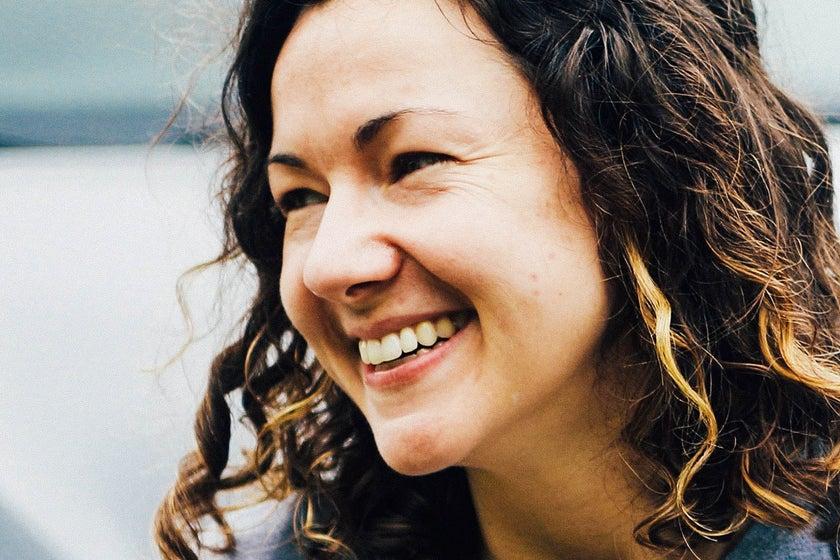
What It’s Like to Have Your Book Banned by the School Board
BY MARY HARRIS
DEC 13, 20213:06 PM
Ashley Pérez used to teach English, down in Texas. Back in the early 2000s, that meant assigning the so-called classics—To Kill a Mockingbird, Of Mice and Men, Shakespeare. I asked her whether there were any books she wouldn’t teach. “I didn’t teach from my district literature textbook at all. Actually, we used them as doorstops,” she said. “I think that when literature is put in a textbook, it stops seeming alive.”Pérez writes young adult books now, but the way she said that last bit—the way she talks about literature being “alive”—I felt like I was back in the classroom with her, feeling the muted thrill of AP English. Because Pérez taught mostly Black and Latino kids, she thinks a lot about how to make books like hers welcoming for all kinds of readers. That means thinking about the hidden messages her stories can send.
But finding Pérez’s book in a school library has gotten a lot harder over the past year. That’s because, as careful as she is about being inclusive when she writes, some people say they feel left out of the narrative. And those people are showing up at school board meetings, demanding books like hers get pulled off the shelves. The American Library Association has called this year’s spike in book banning a “moral panic.” On Monday’s episode of What Next, I spoke with Pérez about what it’s like when your book is the one getting yanked out of libraries. Our conversation had been edited and condensed for clarity.
Mary Harris: Before we get to the backlash over your book, Out of Darkness, can you describe the work, in your own words?
Ashley Pérez: Out of Darkness is a love story. It’s an interracial romance between a Mexican American girl named Naomi, who comes to East Texas from San Antonio, and an African American boy named Washington—Wash is what he goes by. And it’s set against the backdrop of a historical event that occurred about 20 minutes from where I grew up, which is the New London School explosion. A lot of people have never even heard of this event, but in March of 1937, there was a natural gas leak in the school that, when it ignited, caused a huge explosion and the estimate of deaths is close to 300. They never knew for sure because all the school records were destroyed in the explosion.
Something else I noticed when I was reading about Out of Darkness is that I don’t think it’s an easy read. The New York Times review is written by a pretty grizzled reporter, and he wrote, “I actually had to close the book at one point to seek respite with Facebook. And puppies.”
Yeah, I remember that. I agree completely. And often when I hear from folks about the challenges of reading it, I can only respond with understanding, because I lived inside that story world. My heart is still buried in that book. But it is a challenging narrative. It’s a book for a student who is willing, wishing to engage with some very difficult histories. They’re histories of racial violence, histories of sexual abuse, histories of misogyny—those things are all there in the book. There is also a lot of love and family and playfulness and joy that’s happening in spite of those ever-intensifying pressures and constraints.
Pérez says when Out of Darkness was released back in 2015, she braced herself for some kind of pushback. But in the six years the book had been out, she never really got any. That is until she got word back in the spring that it had been put on a “pause” in a Central Texas school district. Then, over the summer, a video emerged. It shows a parent, Kara Belle, objecting to a passage in Pérez’s book. She’s speaking at a school board meeting just outside of Austin.
The words Belle’s quoting in the video do appear in Out of Darkness, but she is compressing an entire scene into a string of buzzwords. In this scene, Naomi, the main character, has walked into a new school. Her classmates recognize she’s the prettiest girl there. But they dismiss her because of her race. “A Mexican is a Mexican is a Mexican,” one girl says. And the boys? They daydream about sexually assaulting Naomi.
In September, I had the pleasure of seeing Kara Belle do a dramatic reading of a series of snippets from a chapter of Out of Darkness in a school board meeting in a video that went viral. It circulated with headlines like, “Texas Mom Loses It Over Anal Sex.” She was reacting to the inclusion of the word cornhole in a passage that was from the perspective of white high school students in this 1930s Texas school who were objecting to the arrival of a Mexican American student in their class and we were seeing how the young men in the class were viewing her as a sexual object, etc.
And we should contextualize the video. This mother goes to a school board meeting. She’s just yelling words at you, and you don’t really know what she’s talking about
Nor does she know what she’s talking about, right? Because she definitely hasn’t read the book.
When I reacted to this, my brain was just kind of scrambled because I was like, “What is going on here?” But those are your words. How did you react?
It’s so painful to hear something that you’ve worked incredibly hard to shape and to present in a way that is part of a literary whole—to see someone just yank those phrases as if any of the phrases that she’s using are things that I endorse. Several of the things are dialog, and the whole point of the passage is to show readers what the main character has to endure, what she has to navigate, the ideas and perspectives and limiting beliefs that are circulating in the school space where she has to spend eight hours of her day.
But this parent is not interested in the function of that passage in the work as a whole, nor is she interested in the work as a whole. There’s a reason she’s reading from something in the first 30 pages. These parents have been steered toward particular books by websites like No Left Turn or Moms for Liberty, so they’ve already decided that this book needs to go, and they’re just looking for what will be the most attention-grabbing. Particularly this individual knew, I think, that her presentation of the topic was going to grab attention. And that was the goal.
You pointed out too that what the district did here—because this woman did win, and the book got taken off the shelves—violated their own policy. Their policy was that they might review a book, but during that time, the book would remain on the shelves. That’s not what happened here.
No. And unfortunately, in these challenges that are happening all over the country, we’re seeing that over and over. Districts have these policies for a reason. If I, as an English teacher, was afraid that one parent complaining would mean that all the books I was teaching were going to be removed, then what am I going to teach? I’m not going to teach the thing that’s challenging and controversial in some way. I’m going to teach the most unobjectionable thing. And that’s kind of the goal here is to chill discourse and intimidate teachers and librarians. So it’s not even just about removing Out of Darkness from the library. It’s about creating an environment in which the librarian, the next time they order books, is going to think twice before choosing a book that engages with difficult histories in our nation or that engages with LGBTQ identities or that engages with teen sexuality in some way, even if that book is highly recommended in professional journals for school libraries.
Another thing that bothers Pérez is that while parents are often complaining to their schools about the sexual content of books like hers, that doesn’t seem to be their true objection to what she’s written. And she feels like that because she sees the books that aren’t getting banned.
I portray these events to challenge them, not to endorse them. Now, I often bring up the Bible because I grew up in a Bible church and I know that book really well, and I ask, “Do you think that the Bible is grooming young people to be sexually abused or gang raped or to engage in incest, because all of those situations occur in that text?” There’s just no denying the pattern of which books are being targeted. Even though the most common reason given is sexual content, it is not the sexual content that these books have in common. These books have in common centering characters or experiences from nonwhite, nondominant communities. If I could make a stack of all of the books in the high school library with sexual content and make a stack of those that feature straight white middle class characters, that’s going to be the highest stack. But those are not the books that are being challenged. And every middle school and high school in Texas, I’m willing to venture, has copies of the Bible. So this idea that this content is unacceptable in some books but fine in others is where I feel the actual intentions, and what kind of message is really being sent becomes clearer.
Part of the reason I wanted to talk to you was this statistic from the American Library Association, which found that these conversations about banning books in schools, they’re happening more often this year than last year. And it seems like a major spike. Given that statistic, I had this question for you: Do you think there are any books that should be banned from schools?
No, I think once a book is included in a school library, I trust the librarian’s judgment. Although there’s no comparison in terms of volume of challenges coming from folks who identify as conservative versus folks who identify as liberal, there have been a handful of cases where there was a call for the removal of To Kill a Mockingbird or Of Mice and Men. And I firmly believe that those books do belong in school libraries.
We should be clear that the reason why I think many educators have become uncomfortable with To Kill a Mockingbird is that it puts forward a white savior narrative.
Yeah, but discomfort is not danger. Teaching To Kill a Mockingbird in an unqualified way, without contextualizing those issues, is at this point irresponsible. But to teach it in ways that highlight and address those problems can be very powerful. And frankly, our literature is full of narratives that are problematic in many of these ways, and we don’t have to teach every one of those problematic narratives. But to find opportunities—even if it’s saying, OK, I’m teaching this other novel, but I’m going to step to the side and have my students read a chapter or two from To Kill a Mockingbird so we can talk about the difference. What’s different when African American characters are portrayed as having agency in their own lives versus when they are portrayed as secondary to the actions of a white character?
One parent in Houston who successfully petitioned her school into getting rid of a couple of books, not your book, explained herself by saying that she’s not into censoring. That’s not what this is about for her. She sees this more as we filter students internet access. We have keywords and trigger words. We know people shouldn’t have access to certain things as a minor. Why isn’t this the same process in school libraries? And I wonder what you’d say to that.
Well, what’s missing from that is attention to what is the material. It’s not a website, it’s a work of literature.
What’s the difference?
Whenever folks are talking about, “We have filters for these other things,” I want to say libraries have those filters, too. They come in the form of professional reviews, librarians referring to the recommendations of professional journals. They can’t read every book. That’s true. But there are resources that guide their selection. So there’s already been filtering. And in the case that they include something that has sexual content, like Out of Darkness, there is a track record of professional, trustworthy organizations evaluating that content and saying, “Yes, this is functioning as part of a literary whole.” It’s not there to glorify the situation. It is part of a story that complicates and challenges that.
It’s not the same as accidentally clicking on pornography.
Exactly, and to imply that it’s the same just reveals a lack of understanding about what it is to engage with literature.
The increasingly heated rhetoric I’m hearing right now when it comes to what kids can and can’t read, the entry point for a lot of parents—what seems to get them so upset—is sex. I wonder a little bit what you make of this sexual panic that is focused on books that deal with race. If you look at the Virginia governor’s race, there was a lot of talk about the book Beloved. Another book that has gotten a lot of attention in the past year was this book Lawn Boy. There’s a very similar school board meeting to the one that happened for your book, where a woman gets up and reads passages where it’s really frank conversations about gay sex, being a queer kid, being a fourth grader having sexual thoughts—stuff that’s tough and stuff that’s challenging.
It’s stuff that’s tough. It’s stuff that’s challenging. But it’s also real. And again, that’s where I come back to: Who am I serving? And I certainly care about parents and their perspective, but I am not writing to please parents. And also, you can’t create literature if you are trying not to offend people. Literature has always taken me to the far, far edge of what I can bear. I’m never comfortable when I’m writing because the things that are worth writing about challenge us.
Can you tell me how your life changed after this video went viral of a woman just dragging your work?
Yeah, my editor called it vandalism, and I appreciate that. The most significant effect has been that because this was so high-profile, my book, which is perhaps more widely read in Texas, since it’s set in Texas, all of a sudden is on the radar of basically every parent participating in this kind of orchestrated challenge. I have been sent lots of materials from private Facebook groups in these communities where my book’s been challenged, removed, or banned. And this is going to sound cynical, but the reason so much of this focus is on sexual content is because folks know they can’t challenge something with a focus on the race of characters or the sexual orientation of characters.
What do they say in the Facebook groups that makes you think that?
I’m going to paraphrase this, but basically, “When you challenge these books, focus on the sexual content, do not use the words gay sex, do not use LGBTQ, do not talk about race. Books can’t be removed for those reasons.” It’s that clear. So while some parents may be there objecting because of the sexual content, there’s clearly an agenda that’s about other issues. It’s about reclaiming this idea that somehow education has been taken away from conservative communities, or that their stories are no longer central. It is really that explicit.
I’ve heard from many school leaders that they’re overwhelmed and exhausted with public information requests. Parents are showing up, even though they’ve passed the number of requests you can make for free, who have no issue running up bills of $500, $600 because they have funding.
And they were requesting like emails or communications?
Purchase orders from the library, beginning of year surveys to check if teachers ask students for preferred pronouns, things like that. They are basically looking for signs that the way things are being conducted in the school somehow violates the principles that they think should govern education.One thing I always want to say really clearly and strongly, especially when being asked about my experiences with this situation, is that what we as authors are going through when these books are removed is a fraction of the struggle and suffering that is occurring for the librarians and the teachers and, above all, the students in these communities. Because trying to learn, trying to teach in an environment of such hostility and opposition is unfathomably difficult. And I hear from teachers and librarians all the time who are at their limit.
The thing I wish I could say to middle-of-the-road parents—parents who might hear a video like that and think, Oh, I don’t think anal sex is the best thing for middle school. Maybe that parent has a point. I would want them to understand that what is happening is that teachers’ and librarians’ and schools’ resources are being pulled away from teaching students and being sucked into these manufactured controversies.
ARTICLE
https://slate.com/news-and-politics/2021/12/texas-school-board-banned-books-ashley-perez-out-of-darkness.html?utm_source=Sailthru&utm_medium=email&utm_campaign=Lit Hub Daily: December 15%2C 2021&utm_term=lithub_master_listPRH and S&S call the lawsuit against them “legally, factually, and economically wrong.”
By Walker Caplan
...
Besides wanting the merger to happen, Penguin Random House has another incentive to fight the DOJ’s lawsuit: according to the New York Times, if the merger doesn’t go through, Penguin Random House will have to pay ViacomCBS, Simon & Schuster’s seller, a termination fee of about $200 million.
...
ARTICLE
https://lithub.com/prh-and-ss-call-the-lawsuit-against-them-legally-factually-and-economically-wrong/REFERRAL ARTICLE
https://kobowritinglife.com/2021/12/17/a-misguided-lawsuit-barack-obamas-faves-and-the-loss-of-two-literary-giants-this-week-in-book-news/




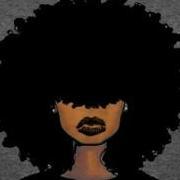


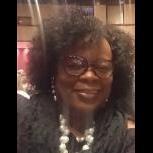
.thumb.jpg.ed52910791d00308abb8c218695bec88.jpg)
